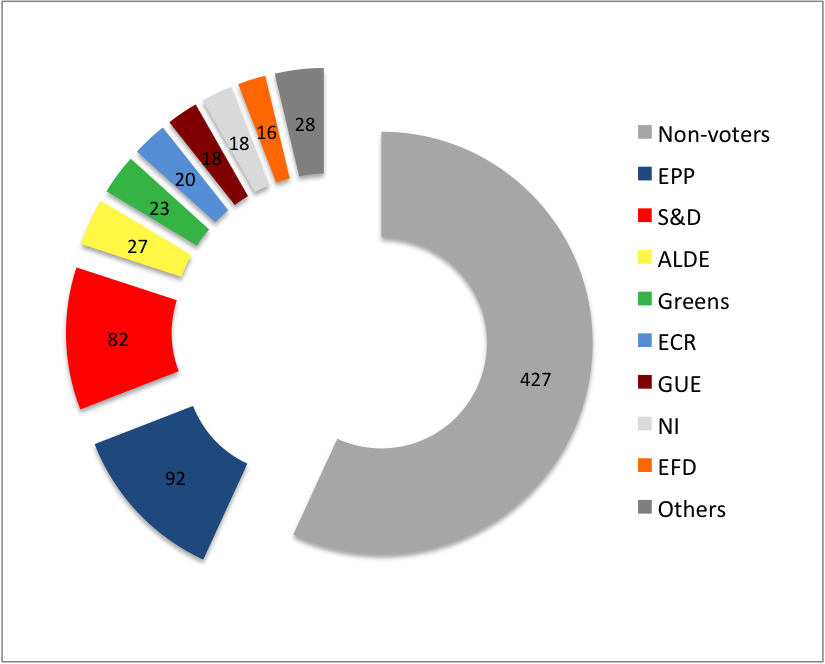Sorry, for once a post that requires a specific interest – and some prior knowledge – in EU politics. No worries, next week I’ll talk about happiness again.
EU elections! After weeks of tensions built up, it’s over. The electorate has voted across the 28 EU countries. We don’t really know what they have said, but at least we’ll spin it in our favour.
There is a lot you can read in the result, but I would argue that the outcome – a low turnout of 43.09% and the rise of Eurosceptic and extreme right/left parties – suggest voters are not fully content with their leaders. I’ll avoid the discussion about happiness and politics today and just share five stories about the EU elections.
- At 43.09%, the turnout is low, though marginally higher than in 2009 (43.00%). Absurdly enough, this was a reason for some EP voices to boldly claim the decline in turnout has been reversed. It is very worrisome to sustain democracy in a country like Slovakia, only 13% went to the polls. Seven out of eight simply didn’t care enough to make their voice heard!
- Let’s visualize it to better understand what the impact is that this 56.91% which is not represented in the EP. Imagine 56.91% of the seats in the EP would not be assigned to anyone. In that case, more than half of the EP – 427 seats – would be empty. The political groups together would only fill 324 seats, the EPP with 92 being the largest.
- Another important narrative of the elections is the rise of the populists and extreme right. To me, this is too simplistic. In many countries, far right parties are doing well. Sadly, there are even enough for the Huffington post to make a list with “9 Scariest Far-Right Parties now in the European Parliament“. But not all of them are winning: Wilders’ PVV lost one seat in the Netherlands, and Jobbik in Hungary is staying at three seats. And euroskeptics come in many different flavours: UKIP (UK), AfD (Germany) and M5S (Italy) are incomparable in their opposition to the EU.
- Altogether, the most interesting story to me is the fragementation of the EP. The slim lead of the EPP against the S&D could reinforce a strong competition. But will want to put their mark on the EP’s position. All the smaller parties will also want to be visible. This fact, and the ample presence of eurosceptics may result in some polarisation and could end the impression that all MEPs agree that whatever the problem, more Europe is the solution.
- On the web, these are the elections of ‘Dear Europe, we are sorry‘. French people everywhere on Twitter share this to ‘apologise’ for the fact that Marine Le Pen’s Front National went from 3 to 24 seats in France. I can understand their frustration, but I don’t see the point in apologising for decisions taken by others. You don’t need to carry the weight of a quarter of the country on your shoulders. Rather than taking an apologetic stance, do something to fight bigotry and discrimination. Become member of a party. Do volunteer work to help people who are worse off. Fight for your ideals! But feeling ashamed about other people’s choices – that will never change anything.


